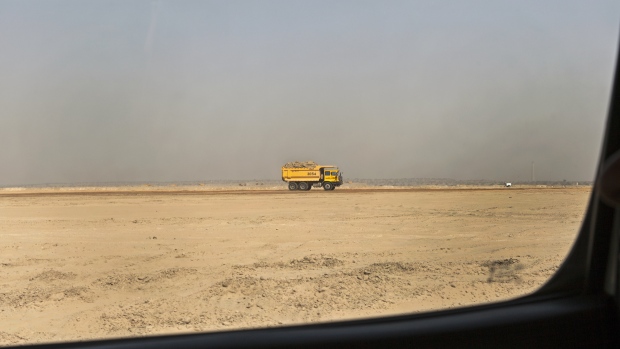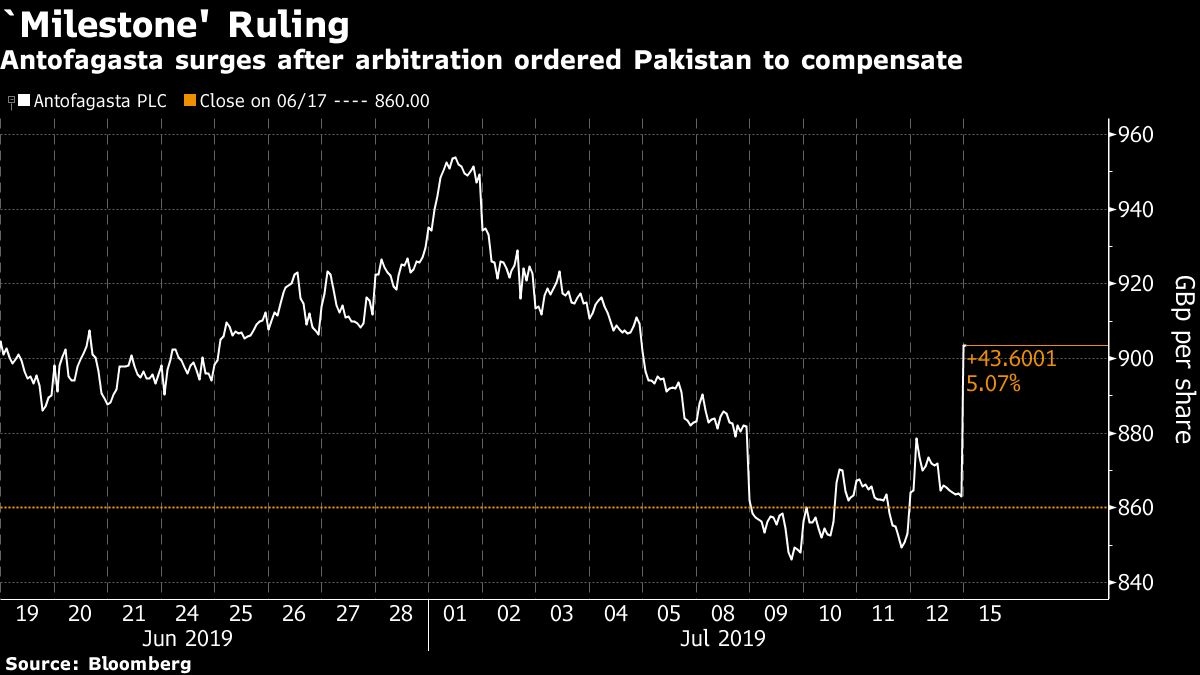Jul 15, 2019
Barrick and Antofagasta win US$5.8B Pakistan ruling
, Bloomberg News

A US$5.8 billion arbitration ruling on a massive copper and gold deposit in Pakistan is a victory for Barrick Gold Corp. (ABX.TO) and Antofagasta Plc (ANFGF.PK) though the project remains a long way from development.
“I think, at the end of the day, Reko Diq will be developed,” Barrick Chief Executive Officer Mark Bristow said, referring to the Pakistan deposit. “The question is when, and by who.”
Antofagasta surged 5.3 per cent in London for its biggest gain in a month following the ruling by an international arbitration tribunal. Barrick rose 0.8 per cent to $21.69 at 9:39 a.m. in Toronto.
A big challenge could be collecting the funds given Pakistan’s fragile economic state, though the ruling could pave the way for the project to go ahead after years of delays. The damages almost match the $6 billion bailout Pakistan agreed to with the International Monetary Fund two months ago to help the South Asian nation avert an economic crisis. Pakistan’s government said it will review the ruling and consider a potential petition to the tribunal.
“Along with our partners at Antofagasta, we remain willing to engage with Pakistan to explore the potential for a negotiated settlement,” Bristow said in a separate statement.
A plan by Santiago-based Antofagasta and Barrick to mine copper and gold in Reko Diq, a rocky desert area in southwest Pakistan, was halted in 2011 because of a dispute over the lease. While Antofagasta said there are limited grounds for challenging the award under the World Bank’s International Center for Settlement and Investment Disputes, the company will only recognize potential proceeds once they have been received.

Bristow and Barrick’s Executive Chairman John Thornton have previously suggested it would make sense to combine some of Barrick’s copper assets through partnerships. The Toronto-based miner’s operating copper assets are Jabal Sayid in Saudi Arabia and Lumwana in Zambia. There has been speculation it might sell Lumwana though in an interview from Zambia, Bristow said it might make more sense to look at partnerships there as well.
“It’s a step in the right direction, but they are unlikely to receive any dollars anytime soon,” said James Bell, an analyst at RBC Capital Markets. “I think the shares are a bit overdone.”
The damages include compensation of $4.09 billion for the fair market value of the Reko Diq project when the mining lease was denied and interest of $1.75 billion. The tribunal also awarded the joint venture just under $62 million in costs.
The joint venture said it had spent more than $500 million on the Reko Diq project and located enough ore to produce 200,000 tons of copper and 250,000 ounces of gold a year for 56 years. The initial capital investment would have exceeded more than $3 billion.
The loan Pakistan agreed to with the IMF in May represents the 13th bailout since the late 1980s for a country facing a balance-of-payments crisis triggered by high fiscal and current-account deficits and dwindling foreign exchange reserves.
--With assistance from Ismail Dilawar and Danielle Bochove.


